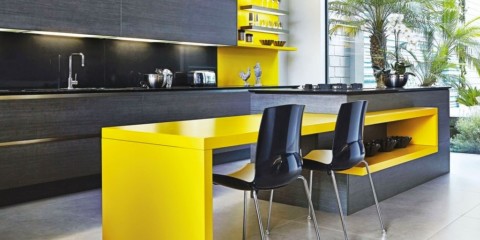 Kitchen
What should be a modern kitchen in 2020
Kitchen
What should be a modern kitchen in 2020
The popular polymer became known in the middle of the last century. It is difficult to imagine a field of activity where polyvinyl chloride is not used. Finishing materials are no exception. PVC products are used everywhere: in offices, social and medical institutions, residential buildings. Today, high-quality plastic meets all EU and Russian standards regarding environmental friendliness and safety. Its unique ability to resist moisture, ultraviolet and other external influences is unique. It withstands the effects of heating and cooling to + - 50 degrees.
As for the design potential, PVC leaves behind drywall, MDF, and other well-known types of finishes. In the kitchen, a plastic ceiling demonstrates the wonders of reincarnation, both under wood, and under stone or expensive fabric.
Types and properties of pvc panels
Content
Externally, the standard panel represents two sheets of plastic interconnected by stiffeners. Due to the "airiness" it is much easier than most of its "brothers."
Important: The more stiffening ribs, the stronger the product. For a panel 3 m long and 0.25 m wide, there should be at least 27-29 of them.
The variety of products on the market rolls over - hundreds of shades include only the color scheme. Nevertheless, they can be divided according to the following criteria.
Connection Types:
- Seamless, where there is no connection of a certain kind. The ends of the panels are adjusted to each other so that on a smooth, even surface, the joints are almost invisible. Seamless plastic ceilings in the kitchen photo fit perfectly into any interior.
- Suture. Connect with grooves and spikes. Mounted panels have a visible joint, reminiscent of a "lining".
Shape and dimensions:
- Tile panels are available in sizes from 300x300 mm to 100x100 mm, width from 1.5 mm. Indispensable for creating original ceiling compositions with alternating smooth and textured tiles imitating wood and stone. Convenient and easy to install.
- Rack and pinion. Elements vary in length from 900 to 3000 mm, width from 100 to 300 mm, thickness from 4 to 8 mm. Mounted as a "lining".
- Plastic sheet. The large dimensions of the product cover a significant area of the ceiling. They are distinguished by their flexibility and integrity. As a rule, they are mounted on a level surface without a frame. Standard sheet sizes range from 900 to 3,000 mm in length and from 900 to 1,500 mm in width.
Note! The optimal thickness of the panel ceiling in the kitchen should be at least 7-8 mm. Smaller sizes can cause deflection during installation or after.
Texture:
- Glossy or matte. Gloss is applied with a layer of varnish after extrusion. Matte surfaces are not further processed.
- Smooth or structured. Today, panels are produced with the texture of natural materials - for example, wood or stone.
Advantages and disadvantages
It is not by chance that PVC panels have gained such popularity. They are characterized by a number of valuable advantages.
- The ceiling in the kitchen made of plastic photo panels always has a modern aesthetic appearance, which is achieved by relatively small means and efforts.
- Plastic is not afraid of water, which at once solves problems with flooding from inaccurately closed taps a floor higher, as well as with mold and fungus, which this material is simply not “over the teeth”.
- It is easy to look after him. For a ceiling made of plastic panels in your kitchen, a rag and soap suds every two to three months are enough.
- Fire resistance is one of the most important properties of polyvinyl chloride, confirmed by numerous studies. For example, in France, PVC items are classified as flammable and non-combustible
- Environmental friendliness. The polymer itself, which has a long service life, does not decompose and does not emit harmful substances. High-quality products must have sanitary certificates that are issued to the consumer upon request.
- Simple installation, accessible even to a person with no experience. On a smooth ceiling, panels are fixed with "liquid nails." For uneven surfaces, a frame (crate) is first mounted on which plastic is attached. It is very convenient if it is necessary to close the pipes and wiring.
- Light weight, which is especially valuable when transporting and delivering cargo to the apartment.
- Availability. The ceiling in the kitchen from inexpensive PVC panels is a completely budgetary event.
- Ample opportunities in the decor. With the help of plastic, you can realize any design project.
The list of disadvantages is much more modest:
- The relative fragility of the material due to its hollow structure. Reliable dent prevention - neat installation. When buying, pay attention to the composition: the high content of chalk is a sign of low-quality goods, prone to deformation.
- “Chemical” odor that disappears a few days after installation
- Dark shades may fade in the sun.
Important: When choosing panels for the ceiling in the kitchen, you should definitely conduct a strength test. To do this, click on the surface so that it bends an average of one third and then release. Dents will remain on the low grade product.
Design features
The unique properties of the material provide a diverse design of finished products.
PVC panels are glossy and matte, successfully imitate wood, fabrics, natural stone. Traditional white ceilings replaced the panels of all colors of the rainbow, with patterns, drawings, including those made using the 3D technique.
Glossy or matte
Here is one of the questions that the consumer decides for himself. The difference between them is in a thin layer of varnish on the glossy. Both those and others have the advantages. Gloss visually expand the small kitchen, focus on sophistication. Haze will add coziness and warmth.
Color panels
Provide extensive opportunities for interesting combinations. At the same time, each will be original and emphasize the individuality of the room. It is only necessary to select compatible colors, and also take into account the tonality of the walls and furniture.
Patterns
It can be any: floral, geometric, oriental, marbled. They are used in accordance with the chosen decor style. They look good in a separate segment of the ceiling, especially if they complement the pattern on the wall.
Imitation of natural material
It is carried out by applying to the panel a painted and relief film. You can imitate everything from velvet to amber. Plastic, which is practically indistinguishable from natural stone or wood, looks impressive and presentable.
3D drawing
A real breakthrough in the decoration of kitchens was made by panels with a 3D pattern. Three-dimensional pictures create the complete illusion of “living” ceilings.Especially good in spacious kitchens with a little furniture.
Plastic without borders
The ceiling of pvc panels in the kitchen design photo shows the limitless possibilities of plastic. It will satisfy the demands of hi-tech fans, organically fit into country music, connect together the disparate details of the eclecticism now fashionable, and create neoclassical multi-level designs. The most ordinary kitchen interior is able to look with it modern and stylish.
Plastic ceiling may well claim the title of ideal. It differs in unique operational characteristics, wide variability of the invoice and color, reasonable price.
Ceiling finish in the kitchen from PVC panels
50 photo ideas of plastic panel ceilings
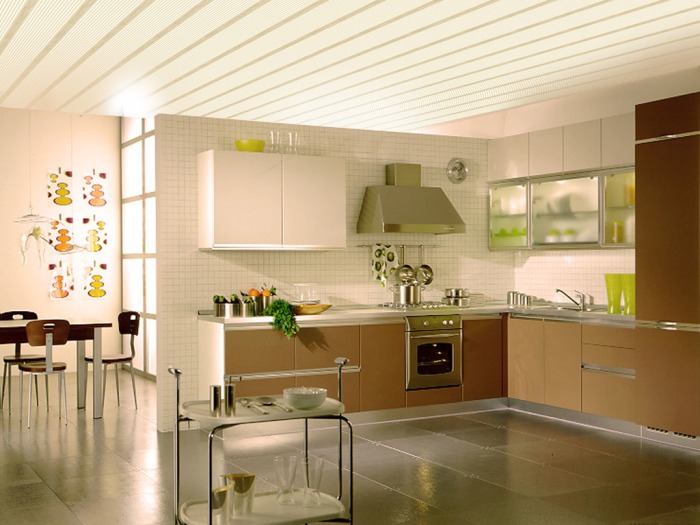
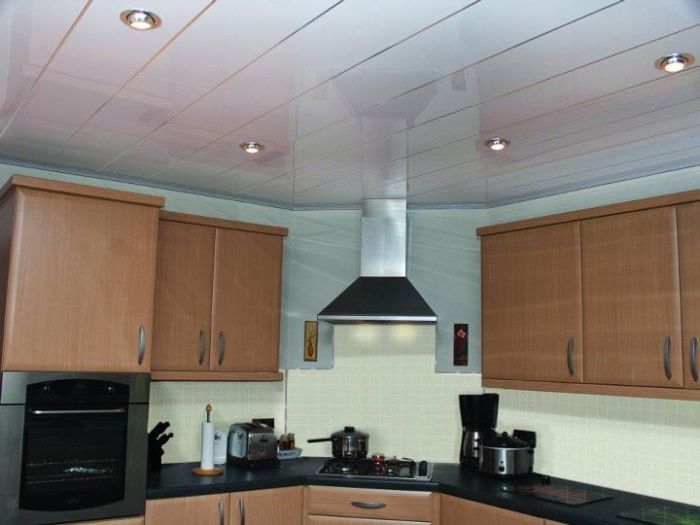
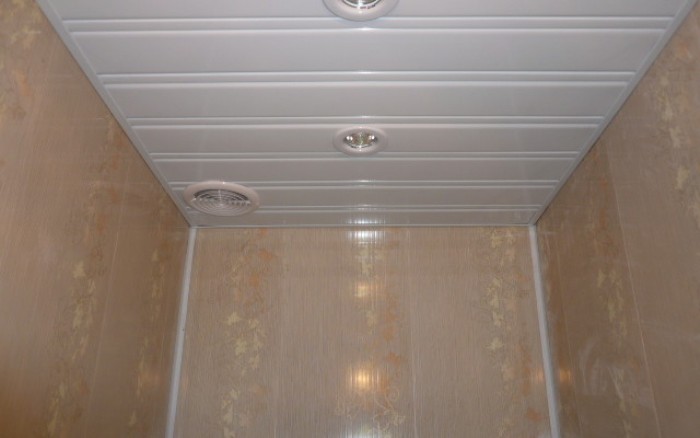
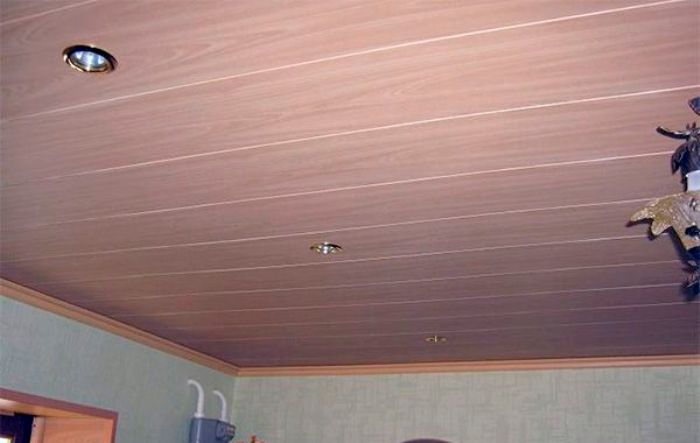
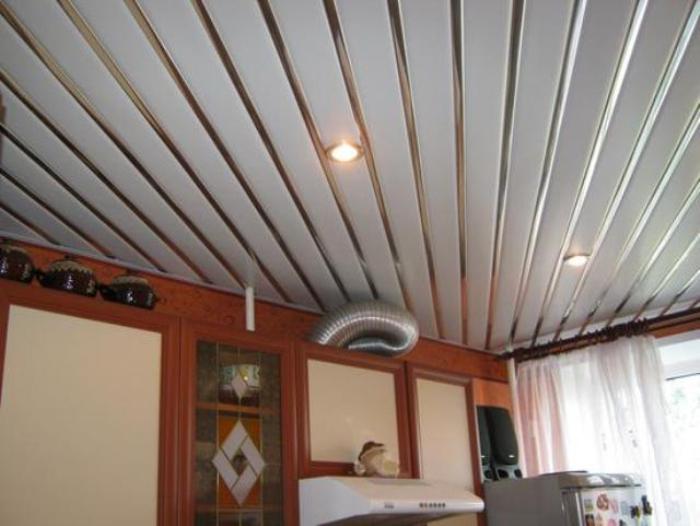
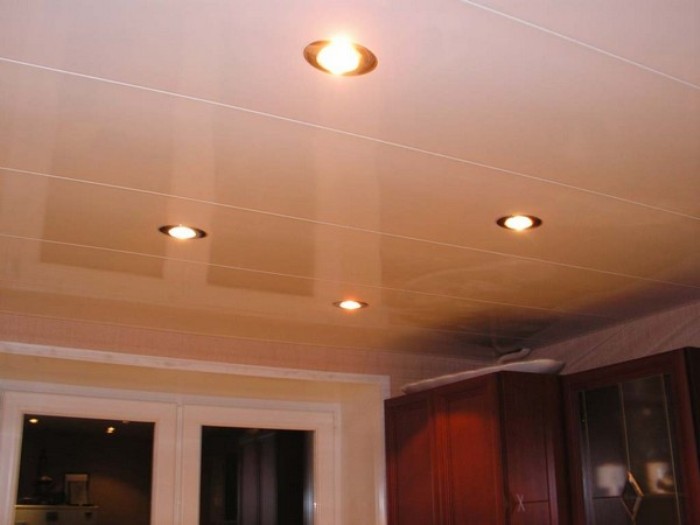
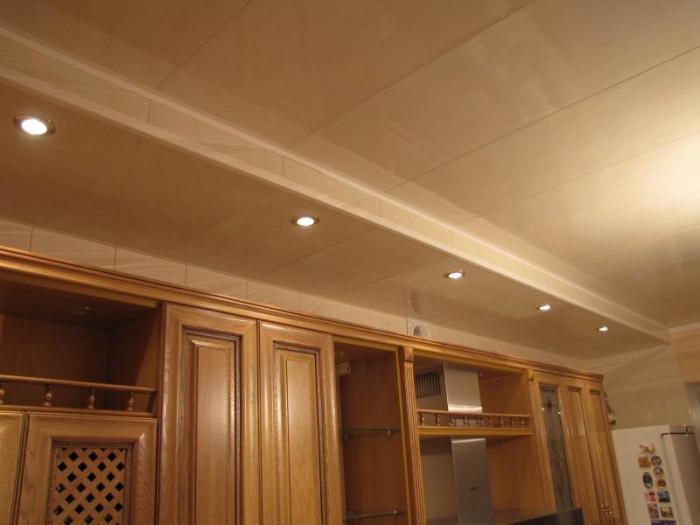
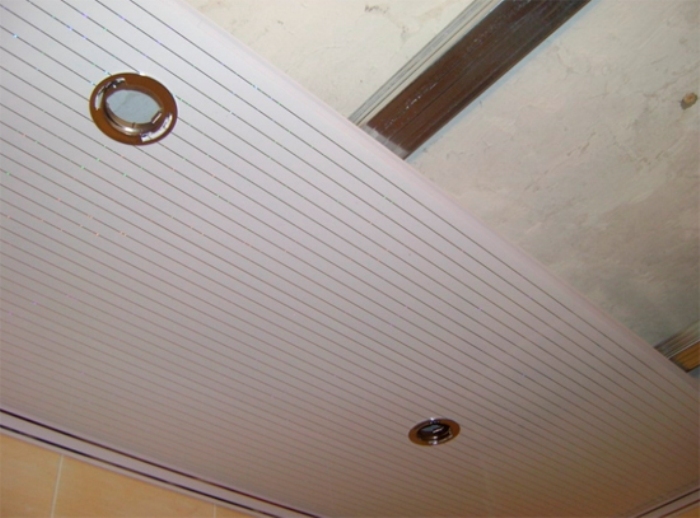
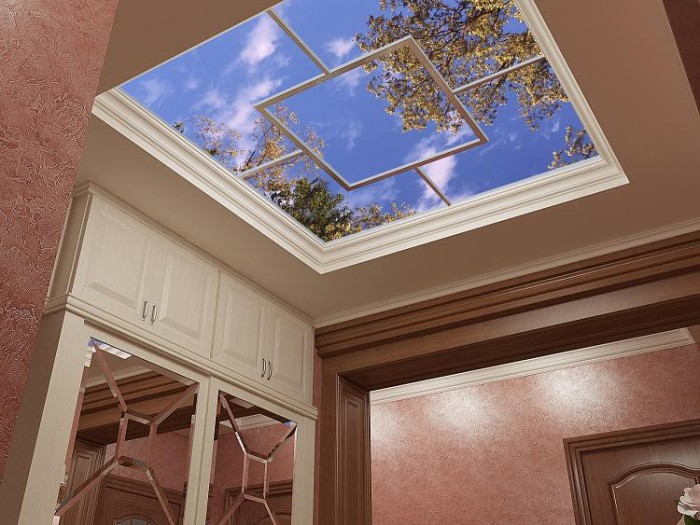
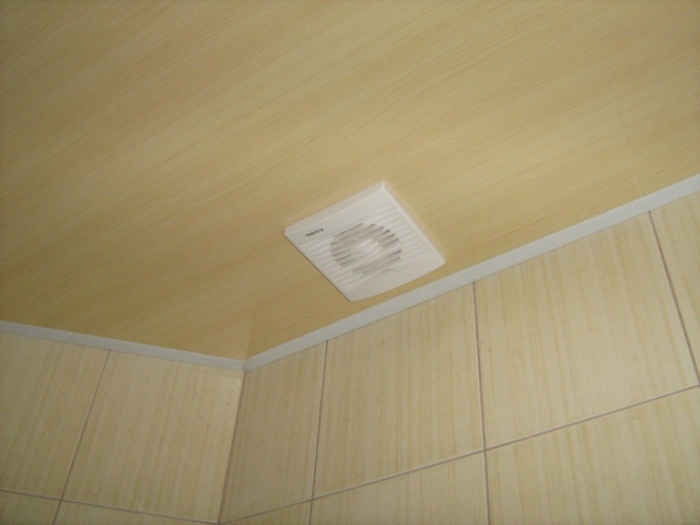
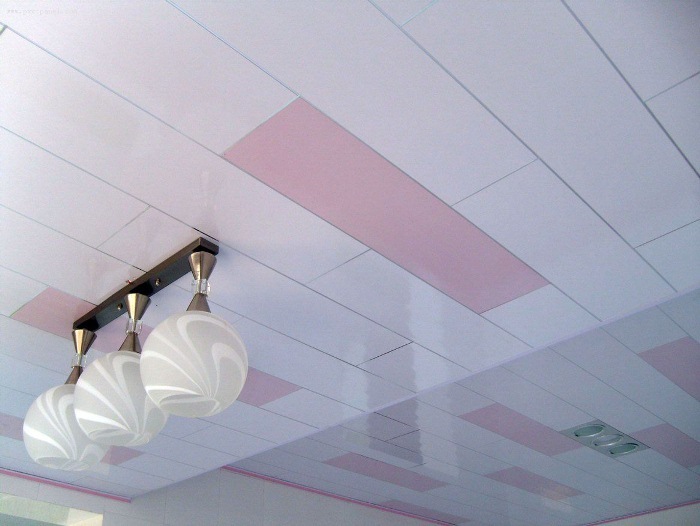
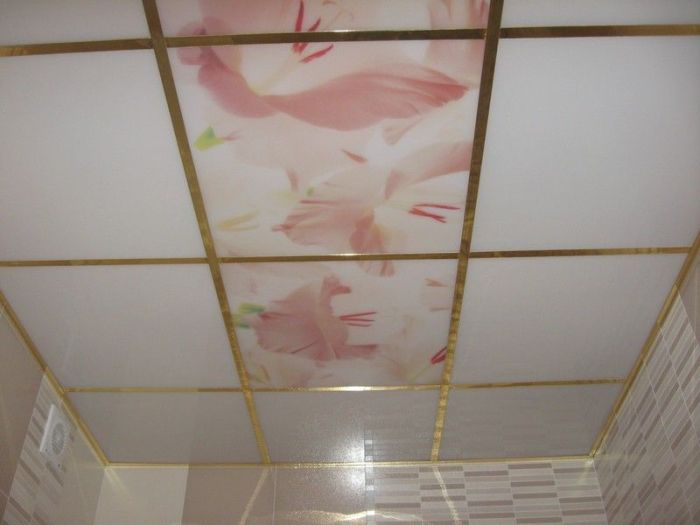
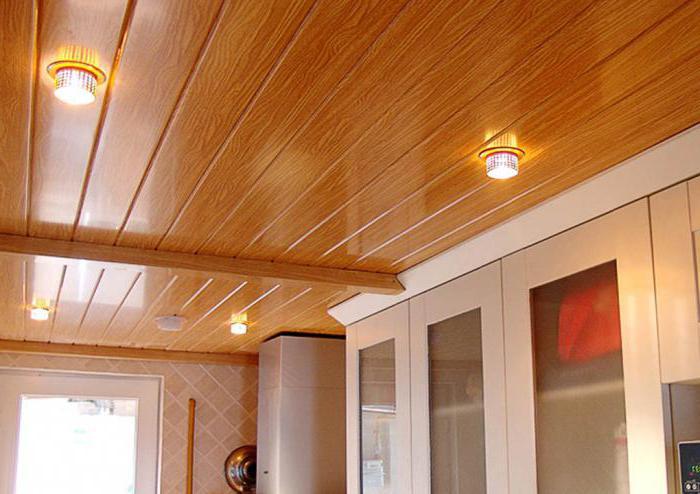
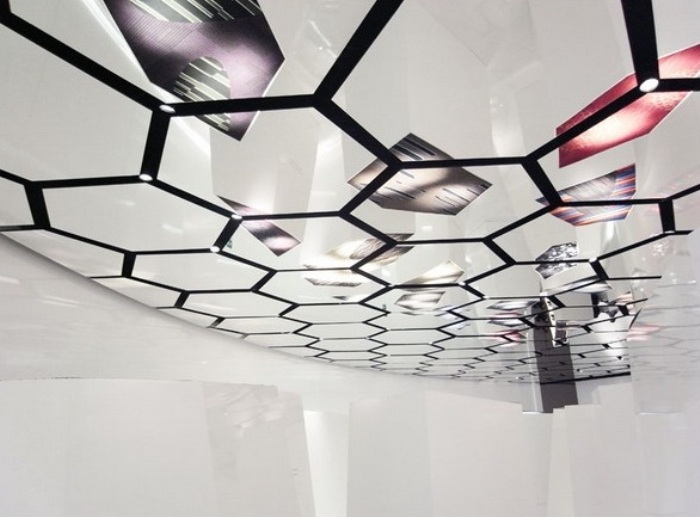
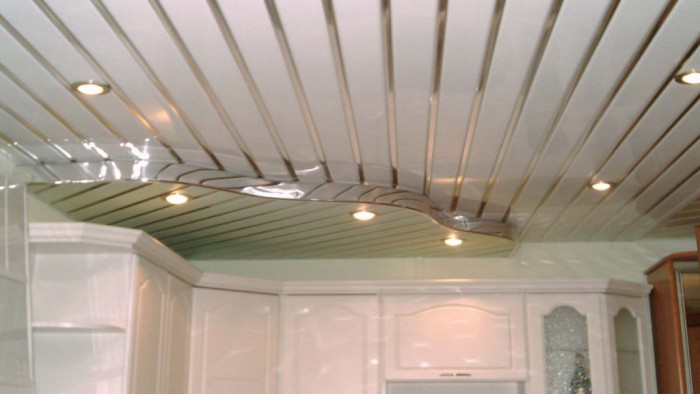
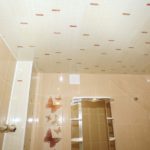
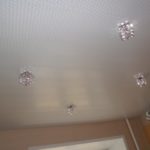
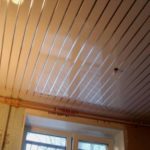
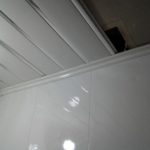
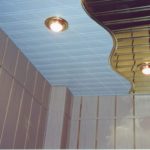
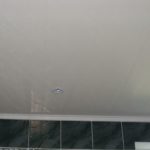
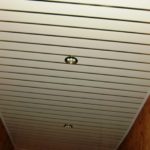
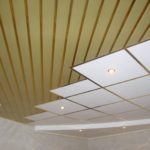
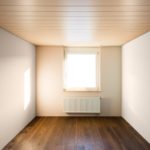
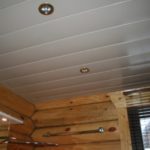
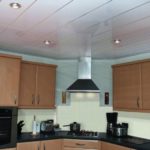
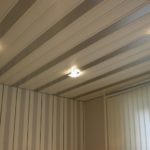
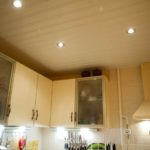
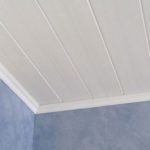
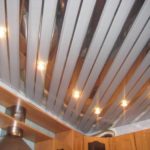
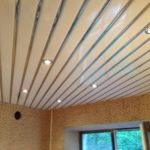
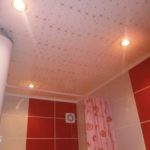
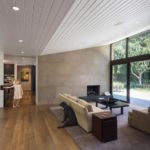
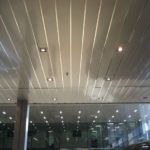
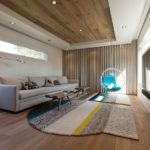
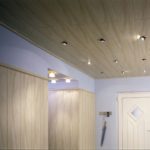
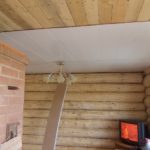
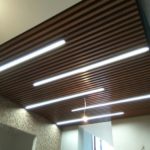
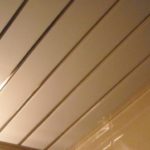
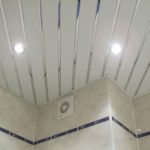
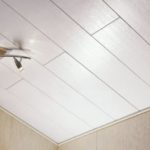
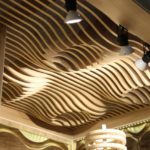
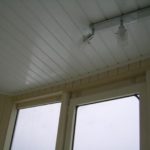
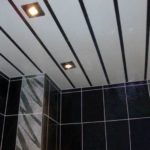
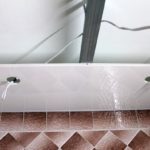
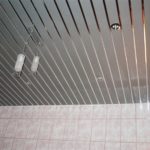
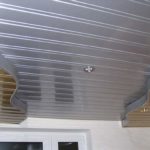
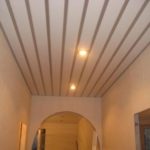
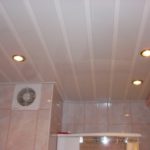
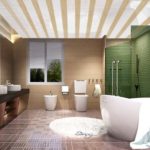
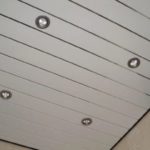
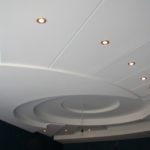
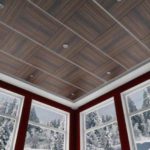
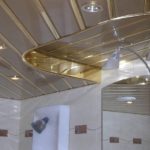
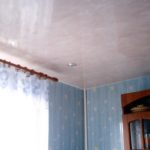
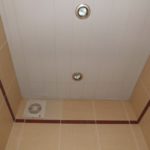
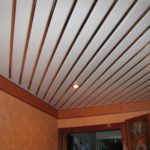
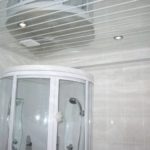
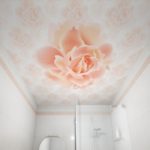
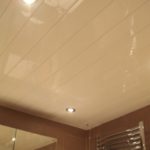
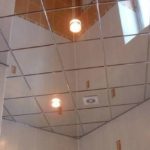
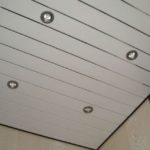
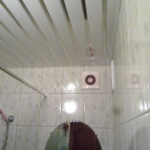
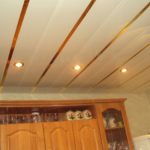
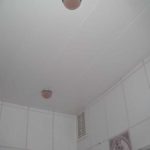
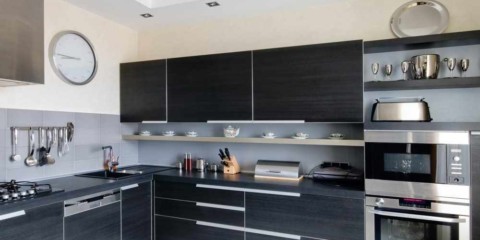
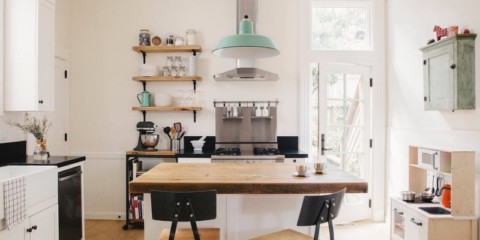
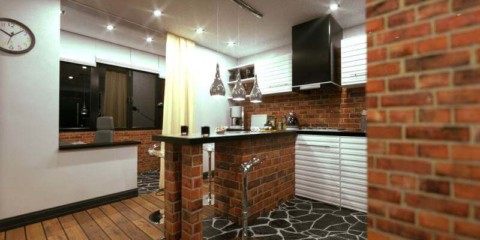
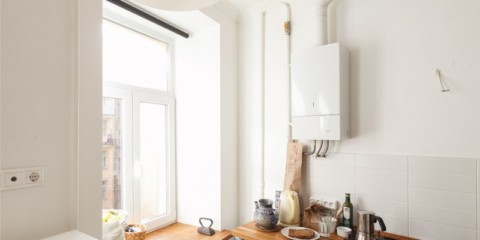
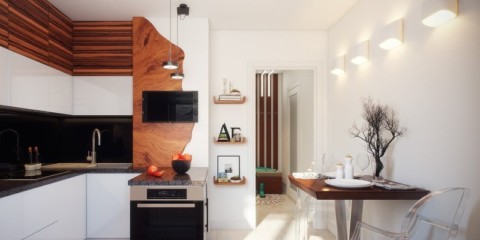
And dotkz [fat and soot which will not be cleaned by any chemistry will glow